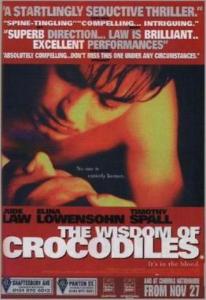
From Opera Stage to Martial Arts Masterpiece: How 'The Prodigal Son' (1981) Redefined Kung Fu Cinema!
In the glorious pantheon of Hong Kong martial arts cinema, the early 1980s marked a pivotal era where the genre, still reeling from the global impact of Bruce Lee, began to evolve beyond simple revenge narratives and traditional Shaolin templates. It was a period of incredible innovation, where directors and choreographers experimented with new fighting styles, integrated comedic elements with newfound sophistication, and elevated the dramatic stakes. Among the films that epitomized this golden age, Sammo Hung's The Prodigal Son (1981), originally known as Bai Ga Jai, stands as a monumental achievement, particularly revered for its meticulous, historically informed portrayal of Wing Chun kung fu. Breaking away from exaggerated acrobatics, the film presented a grounded, intricate, and astonishingly precise depiction of this practical martial art, influencing countless films that followed and firmly establishing its place as one of the finest kung fu movies ever made. Its blend of breathtaking action, genuine humor, and a surprisingly poignant narrative truly pushed the boundaries of what the genre could achieve, setting a new benchmark for technical excellence and storytelling depth.
The film's narrative centers on Leung Chang (Yuen Biao), the spoiled and arrogant son of a wealthy Foshan merchant, renowned throughout his town as an undefeated kung fu master. The catch? His overprotective father secretly bribes all of Chang's opponents to ensure his son never loses, thus preserving his inflated ego and preventing him from truly learning the art. This pampered existence is shattered when Chang inadvertently offends Leung Yee-tai (Lam Ching-ying), a seemingly unassuming opera troupe performer who is, in reality, a genuine and highly skilled master of Wing Chun. Humbled by his swift defeat, Chang begs Yee-tai to take him as a student, embarking on a grueling and transformative journey of discipline, humility, and true martial arts enlightenment. What follows is a classic underdog tale, where a young man must shed his pride and privileged upbringing to embrace the true spirit of kung fu, learning not just to fight, but to live with integrity.
Sammo Hung, who not only directed but also co-starred as the eccentric and initially skeptical master Wong Wah-bo, orchestrates a symphony of action that remains unparalleled. The film is celebrated for its authentic and highly detailed Wing Chun choreography, which emphasizes fluid, close-range combat, precise deflections, and rapid-fire strikes. Unlike many films that sacrifice realism for flash, The Prodigal Son meticulously showcases the principles of Wing Chun, making every punch and block feel earned and impactful. Hung's directorial vision brings a perfect balance of exhilarating fight sequences, genuinely laugh-out-loud comedic moments, and a surprising depth of character drama. The production design and period setting are also meticulous, transporting viewers to 19th-century Foshan with vibrant detail. It's a masterclass in pacing, building momentum from lighthearted humor to intense, dramatic confrontations, culminating in some of the most iconic fight scenes in martial arts cinema history.
The film boasts an impeccable cast, each contributing to its legendary status. Yuen Biao delivers a career-defining performance as Leung Chang, displaying not only his extraordinary acrobatic and martial arts skills but also a remarkable range as he transitions from arrogant youth to disciplined master. Lam Ching-ying, famous later for his vampire-hunting priest roles, is simply sublime as Leung Yee-tai, embodying quiet wisdom and devastating power, particularly in his iconic blindfolded Wing Chun demonstration. And, of course, Sammo Hung himself is magnificent as Wong Wah-bo, providing both comedic relief and profound martial arts wisdom. The Prodigal Son is not just a martial arts film; it's a profound narrative about self-discovery, the true meaning of power, and the importance of humility, all wrapped in some of the most exhilarating and technically brilliant fight choreography ever put to screen. It remains a timeless classic, revered by fans and martial artists alike, a testament to the enduring genius of Sammo Hung and the golden era of Hong Kong cinema.
Director: Sammo Hung.
Cast: Yuen Biao as Leung Chang, Lam Ching-ying as Leung Yee-tai, Sammo Hung as Wong Wah-bo, and Frankie Chan as Ngai Fai.
Special Info/Trivia: The film is widely regarded as one of the best Wing Chun kung fu films ever made, known for its accurate and highly detailed choreography of the style. Sammo Hung served as director, action choreographer, and co-star. Lam Ching-ying (famous for Mr. Vampire) and Frankie Chan were real-life Wing Chun practitioners, adding to the film's authenticity. It won the Hong Kong Film Award for Best Action Choreography and was nominated for Best Film and Best Director, among others. The film showcases Wing Chun's emphasis on close-range combat and practical self-defense, distinct from more acrobatic kung fu styles.





